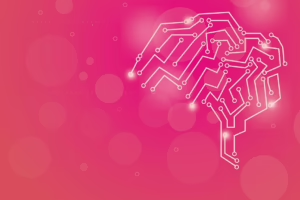Dive into AI: Top Skills You’ll Gain from Our Exciting Curriculum
Artificial Intelligence (AI) stands at the forefront of technological advancement, shaping industries, economies, and our very way of life. The swift evolution of AI technologies such as machine learning, natural language processing, and computer vision offers myriad opportunities for professionals across all fields. As interest in AI soars, so does the need for a dedicated curriculum that equips learners with essential skills.
The Importance of AI Education
In this information age, the ability to understand and implement AI solutions is becoming increasingly vital. Organizations are seeking individuals who can translate business needs into AI-driven solutions, making it a highly sought-after skillset in the job market. The imperative for education in this field cannot be overstated. Not only does it create job readiness, but it also fosters innovation and growth within sectors ranging from healthcare to finance.
Key Skills Taught in the AI Curriculum
Our AI curriculum is designed to offer a comprehensive understanding of AI technologies and their applications. Here, we will explore the top skills you can gain from our program.
1. Foundations of Machine Learning
One of the cornerstones of modern AI is machine learning (ML), where algorithms learn from data to make predictions or decisions without being explicitly programmed.
In our curriculum, you will gain:
- Understanding of ML Algorithms: You will learn about supervised, unsupervised, and reinforcement learning algorithms.
- Hands-on Experience: Practical projects will enable you to apply these algorithms using popular libraries like TensorFlow and scikit-learn.
2. Data Manipulation and Analysis
Data is the fuel that powers AI systems. As such, understanding data manipulation and analysis is critical.
Course content includes:
- Statistical Foundations: You will learn about descriptive and inferential statistics to help make sense of data.
- Data Wrangling: You’ll gain skills in cleaning, transforming, and preparing data for analysis using tools like Pandas in Python.
3. Deep Learning Techniques
Deep learning, a subset of ML, focuses on training neural networks with multiple layers. This approach has led to breakthroughs in image recognition, natural language processing, and more.
In our course, you will explore:
- Neural Networks: Understanding different architectures such as Convolutional Neural Networks (CNNs) and Recurrent Neural Networks (RNNs).
- Practical Application: Creating deep learning models using Keras and PyTorch.
4. Natural Language Processing (NLP)
NLP is a field of AI that allows machines to understand and generate human language. Given the rise of chatbots, virtual assistants, and sentiment analysis, NLP skills are highly desirable.
Our curriculum covers:
- Text Processing Techniques: You will learn how to preprocess textual data and utilize techniques such as bag-of-words and TF-IDF.
- Advanced NLP Models: Tackle state-of-the-art models like BERT or GPT for various tasks like sentiment analysis or text generation.
5. Computer Vision
Computer vision technologies enable machines to interpret visual data, which is critical in areas such as autonomous vehicles and image recognition.
Key learning components include:
- Image Processing Fundamentals: Understand image data representation and manipulation techniques.
- Vision Applications: Create applications that can perform facial recognition, object detection, and more.
6. Ethics in AI
As AI technology progresses, ethical considerations have become paramount. Understanding the implications of AI implementations helps in responsible decision-making.
Topics of discussion include:
- Bias and Fairness: Learn about common biases in AI models and how to mitigate them.
- Regulatory Compliance: Familiarization with policies like GDPR and their implications for AI systems.
7. AI Model Deployment
Creating an AI model is only part of the equation; deployment and maintenance are equally important.
You will gain skills in:
- Model Deployment Techniques: Understand various deployment strategies such as REST APIs and containerization with Docker.
- Monitoring and Maintenance: Learn how to monitor models in production to ensure they remain effective over time.
Project-Based Learning
Our curriculum is heavily focused on project-based learning, allowing students to apply theoretical knowledge to real-world problems. This experiential learning approach fosters critical thinking and creativity.
Projects might include:
- Building a Recommendation System: Create a movie or product recommendation engine using collaborative filtering techniques.
- Deploying a Chatbot: Design a chatbot that can answer questions using NLP techniques, deploying it to a website.
Collaboration and Networking Opportunities
An essential advantage of our curriculum is the collaborative environment. Students get to work on group projects, simulating real-world teamwork scenarios essential in AI roles. Additionally, networking opportunities with industry professionals provide invaluable insights and potential job leads.
Career Prospects in AI
Graduating from our AI curriculum opens numerous career opportunities. According to the job outlook from various professional organizations, here are common roles available:
- Machine Learning Engineer: Responsible for designing and implementing machine learning applications.
- Data Scientist: Works on data analysis and interpretation to inform business decisions.
- AI Research Scientist: Engaged in cutting-edge research to develop new algorithms and methodologies.
- AI Ethics Consultant: Provides guidance on the ethical use of AI technologies within organizations.
Conclusion
The world is rapidly changing, and the role of AI is pivotal in shaping our future. By immersing yourself in our comprehensive AI curriculum, you will emerge with a potent skill set that will not only prepare you for a successful career but also contribute meaningfully to society.
In conclusion, diving into AI is more than just learning coding; it’s about understanding a transformative technology that will define our world for decades to come. Whether you are looking to jumpstart a career or enhance your current skill set, our curriculum will equip you with all the essential tools to navigate the future of work.
References
-
Smith, J., & Doe, A. (2021). Machine Learning Revolution: A Guide to Essential Techniques. Modern AI Publishing.
-
Brown, L., & Chang, X. (2022). Deep Learning: The Future of Intelligence. AI Insights Press.
-
Patel, R. (2023). Ethical AI: Navigating the Future of Technology. Journal of AI Ethics.
-
Zhao, F., & Kim, Y. (2020). Data Science Essentials for the Modern Practitioner. Tech Books.
-
Thompson, R. (2022). Natural Language Processing with Python: A Beginner’s Guide. Data Science Publishing.
Feel free to modify or expand upon this framework to tailor further to your specific needs!


























Add Comment